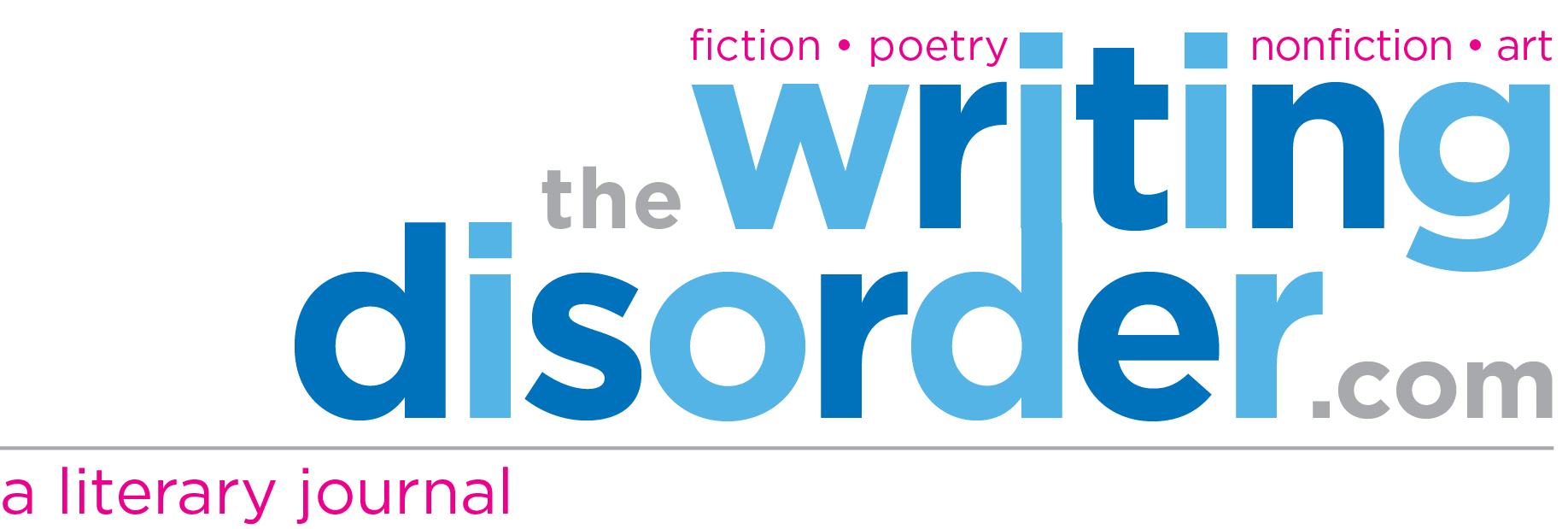Walking the Dogs in the Morning
by Charles Grosel
The tug of leashes, the sting of the morning sun,
halos of spray sizzling on the speckled sidewalk, heat-heaved,
canting us toward each other as the recurring numbness
crackles up my legs, a deadness between feet and thigh,
between us, you willing to hold me up, me too tempted to let you.
I hand you the leather loop instead, careen to the stop sign, leaden,
unbalanced, grabbing hold of the metal post and stomping my legs back to life.
The prickle of feeling returns, the shadow of something else recedes
for now. Keep walking, I urge you, and you do, a quick glance back,
the dogs eagerly nosing the green blades of yucca lining the path.
Time’s Hard Lesson
When I was about eight, at the end of the summer we moved near
a new development in a small city known for its apple orchards. Our
southern colonial with its four pillars and faux black shutters was not
part of the development, technically, though built at the same time.
Our house sat between two of the original farmhouses whose families
had sold the orchards and the not-yet-completely bulldozed woods
surrounding them. Lanes and Trails and Circles had already been paved
in concrete, demarcated by their rounded curbs, but when we arrived,
only a few houses had been built, their green sod squares brightly
artificial against the churned-up earth. The streets emptied into woods.
Three prune trees lined our front yard, the fruit tasty when ripe, effective
projectiles when green or soft with rot. The two neighbors kept dozens
of apple trees in what remained of their yards. The man to the west
sprayed the trees for pests and sold the apples in baskets arranged neatly
on the lawn. The man to the east, whose land my father had bought to
build his dream house, let his apples go to worm. In his workshop he
kept a cider press he showed me how to use that fall. You dewormed
the apples with a pocketknife, passed them through a hand-cranked
grinder into a wooden bucket, then screw-pressed the mash to drain into
a plastic container and funneled the result into dusty moonshine jugs.
You could taste the golden scent of the apple spray in the afternoon sun.
I walked alone in what was left of the woods wearing rubber boots
against the mud, a temporary hermit, a pilgrim, a contemplative
shut into my head by the slurp and slosh of my steps, then, as winter
came, by the crackle of iced-over puddles and bulldozer tracks. I don’t
remember what I did on those walks. Walked. Thought about things.
I was not a junior botanist or geologist sorting rocks. I walked, my
breath hardening in my chest, the slap of branches on my arms. I was
there and not there. Not observing myself, exactly. Settling into myself.
For children everything will be as it is until they learn the hard lesson
of time. When the ice thawed into mud that spring, then dried enough to
hold the backhoes clawing out basements in the pegged-off lots, the split
level castles sprang up, their chimneys’ lining the streets, devouring
the woods that had likely earned the name only in my imagination.
So, You’re Dead
So, you’re dead. Have been for years, and I didn’t
even know it, which gives lie to what you
told me over and again, how we had
a connection, something about the soul,
you said, but it wasn’t the soul you were after,
and wouldn’t I have felt the thread snap?
So, you’re dead. What do you want me to say?
That I’ll miss you? That the “seduction,” as you
liked to call it, was on me because I
was privileged white and never learned no, that
I was thirsty for—something—but not that,
though you always claimed to know me better.
So, you’re dead. What do I call you, now? Dear
departed? Old friend? Mentor? Seducer?
Worse? We are running the train on names here
through a hole in the donut of memory,
when even now I’m not sure. The drugs? Or
is that another thing I invented?
So, you’re dead. And out of my life so long
you can’t put that on me, though back then
you tried to convince me that only my
touch could ease the migraines, that only I
stood between you and your father’s rusty
revolver. I must have believed you.
So, you’re dead. Where are the books
you promised me, the library in the attic
of your parents’ home, smooth pine boards
lining the walls, your early death held out
before me like a beacon or a goad.
Am I more to blame if I still want them?
So, you’re dead. But not so early. I’d say
you can’t hurt me now, but follow the trail
of words. I suppose I should thank you. What else
would I write about? You’re dead, though what
you did to me isn’t, yet, no matter
how many times I take a pen to it.
BIO
Charles Grosel is an editor, writer, and poet living in Arizona. He has published stories in Western Humanities Review, Fiction Southeast, Water-Stone, and The MacGuffin and poems in Nimrod, The Threepenny Review, Kestrel, Cream City Review, and Harpur Palate, among others. His chapbook of poems is The Sound of Rain Without Water.
See more at www.write4success.net



